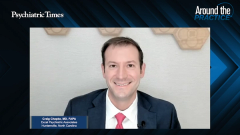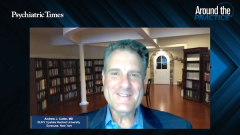
Patient Case #1: Dealing With Treatment Delay in Adult ADHD
A panel of ADHD specialists discuss the impact of treatment delay when dealing with an adult patient.
Episodes in this series

Stephen Faraone, PhD: Let's move on to talking about this patient who had a treatment delay. How, in your mind does that change what this treatment program might look like? How might one treat this patient differently than a patient who didn't have a delay in treatment, that was treated all throughout childhood, and comes in and is requiring some help?
Andrew J. Cutler, MD: One thing Craig alluded to earlier, I find that with adults when I'm making the diagnosis in an adult who has not been previously diagnosed, part of my management is almost always some form of grief counseling. And patients will say, "Wait a minute, you mean I've had this condition since childhood or however long, that if I'd gotten help, my life could have been different?" And I say to them, "Yes, that's true. I can't change that." And I realize that there's got to be almost a grieving process, a reorientation to then be able to move forward.
Theresa Cerulli, MD: Especially, Andy, when you hear the patients say, "My parents didn't want me to see anyone, my parents wouldn't let me take medication.”
Andrew J. Cutler, MD: Or "I knew something was wrong, and they didn't listen."
Theresa Cerulli, MD: They didn't listen. That is heartbreaking.
Stephen Faraone, PhD: When treatment has been delayed for so long, of course, these patients haven't developed certain life skills that other people more naturally develop. They say of course that medication is clear but as the saying goes, pills aren't skills, what do you do to help a person learn some of the life skills they never learned because of their ADHD?
Andrew J. Cutler, MD: It's not only not learning healthy life skills, but they’ve also fallen into unhealthy habits such as quick fixes, substance abuse, alcohol is a big one, smoking is one, clearly. Nicotine is a stimulant, and there's a higher rate of smoking amongst adults with ADHD as we know as well. It's both undoing bad habits and maybe learning new habits at the same time. Healthy socialization, exercise is something I prescribe always to my adults with ADHD.
Craig Chepke, MD, FAPA: And ADHD coaching, is wonderful. A lot of patients will say, "I don't want to go to therapy, I don't want to just talk about this," and I tell them that this is not therapy, an ADHD coach does something very different from what a therapist does, and it could be very helpful for you, in my opinion.
Andrew J. Cutler, MD: Agreed.
Stephen Faraone, PhD: That's a great point. It's an easy way for someone to get those skills. Like this patient we're talking about, who didn't have time management skills, they need to learn that somehow. And a good ADHD coach can do that, it's unfortunate that they're not regulated, it's hard to know the quality of a given coach, but it's something that practitioners need to investigate in their community.
Andrew J. Cutler, MD: There is an ADHD coach’s association.
Stephen Faraone, PhD: Good point. And we also must mention that cognitive behavior therapy is a very serious coaching that's evidence-based, we know that it works. The problem is it's very hard to find in many locations.
Andrew J. Cutler, MD: Steve, one other thing is the importance of sleep hygiene, which I know we always give lip service to, but especially, I want to mention adults with ADHD tend to overdo screen time. At night they'll be on their phone, they'll be surfing the internet, they'll be shopping impulsively. They need to learn healthy habits to get ready for bed and deal with sleep.
Stephen Faraone, PhD: I'm glad you mentioned that, and Theresa mentioned sleep problems before. I think many practitioners don't realize that, although insomnia and sleep problems are adverse effects of some ADHD medications, they're also associated with ADHD in the absence of medication. That's been shown now by many studies, and meta-analyses, it's as strong as data gets. Patients need to be evaluated for pre-existing sleep disorders. In some cases, if patients have sleep apnea, ADHD symptoms will be reduced dramatically, with an effect size similar to a non-stimulant.
Andrew J. Cutler, MD: I'm so glad you mentioned that Stephen, that goes along with what I said earlier about ADHD adults can be more overweight, more obese, and that's associated. And sleep apnea can cause depression and inattention, and symptoms that look like ADHD. I'm on a mission to get the mental health community to think more about obstructive sleep apnea and sleep disorders, and screen for them.
Stephen Faraone, PhD: It's a good mission, Andy. Go for it.
Transcript edited for clarity
Newsletter
Receive trusted psychiatric news, expert analysis, and clinical insights — subscribe today to support your practice and your patients.











